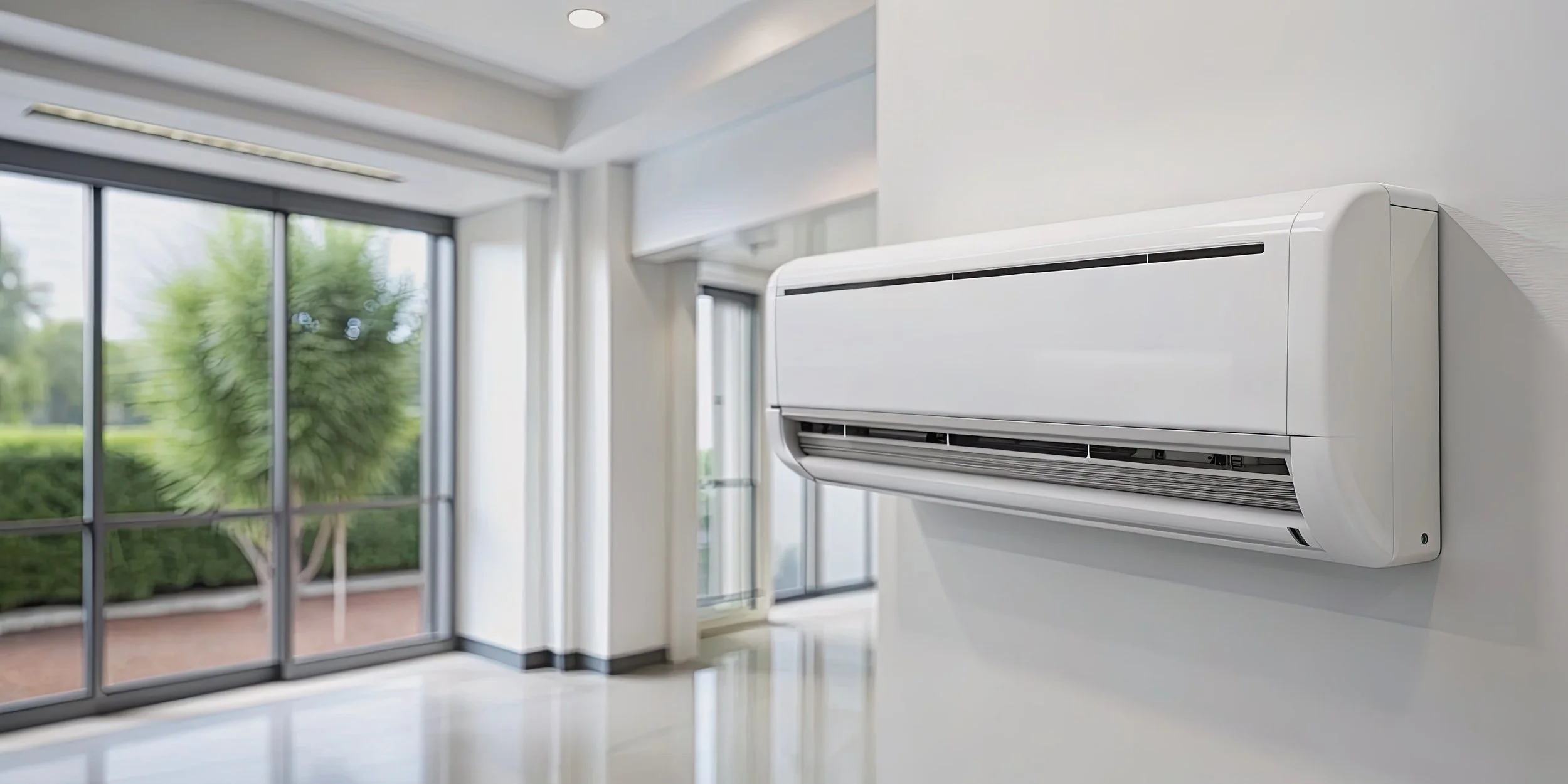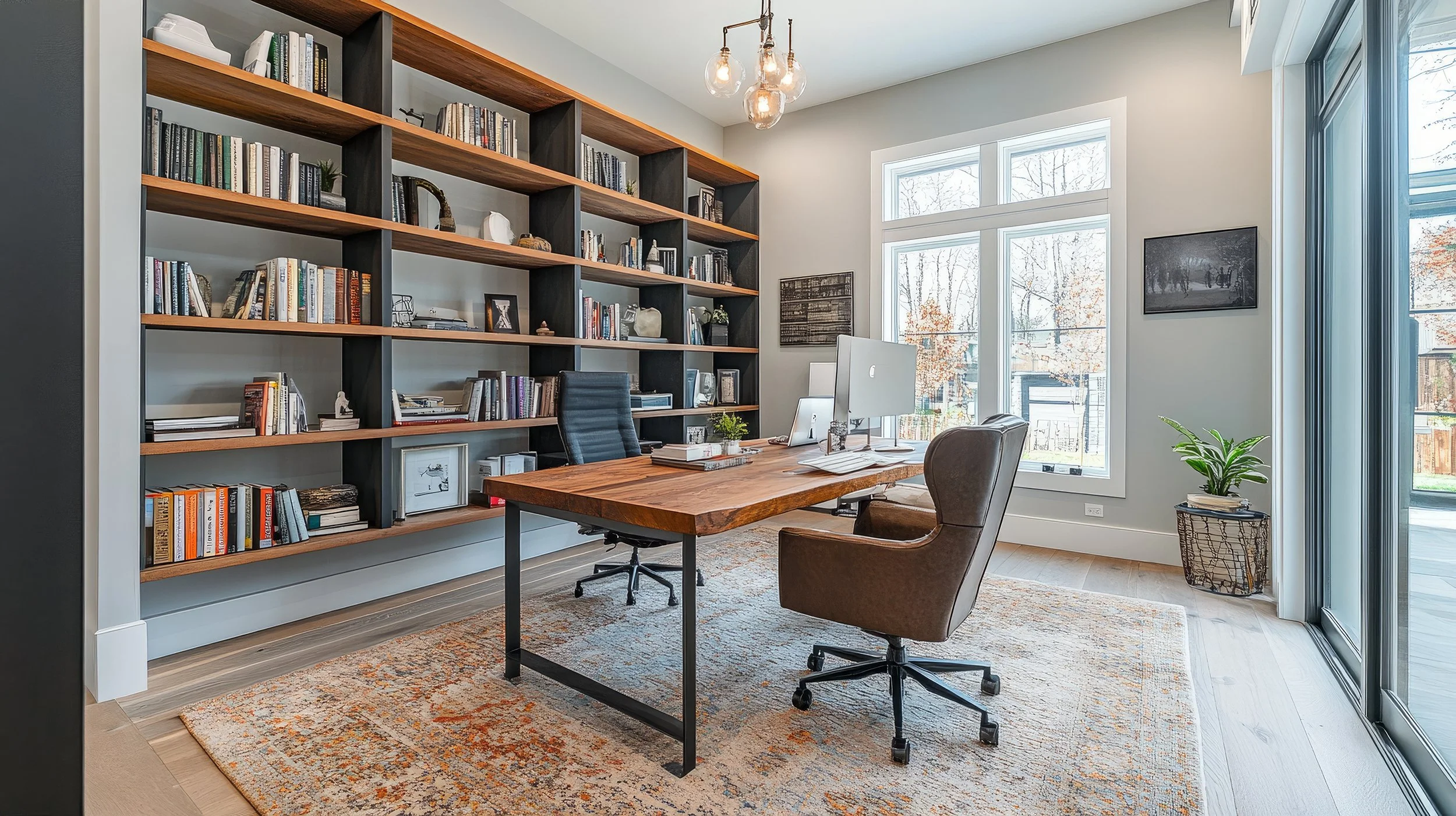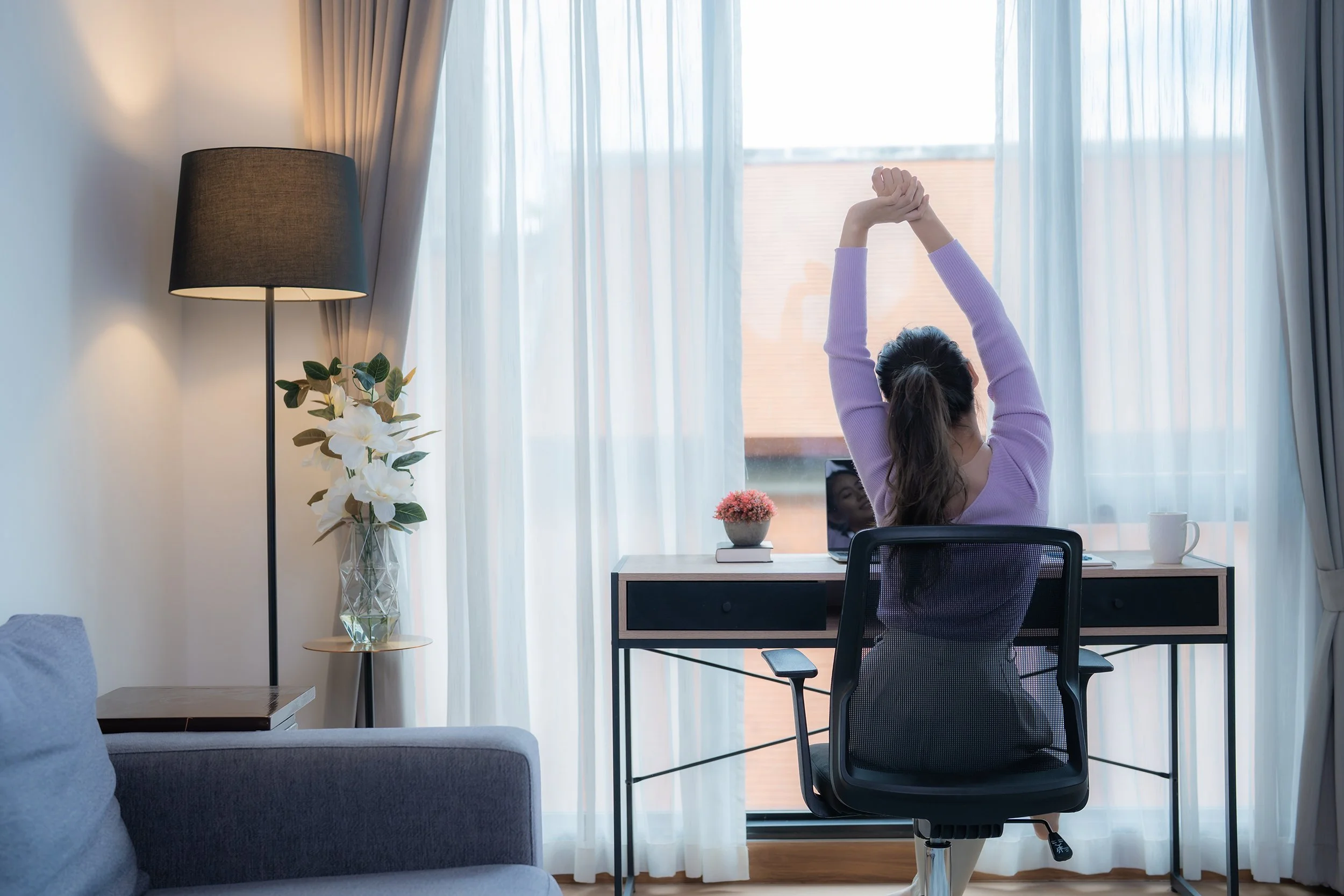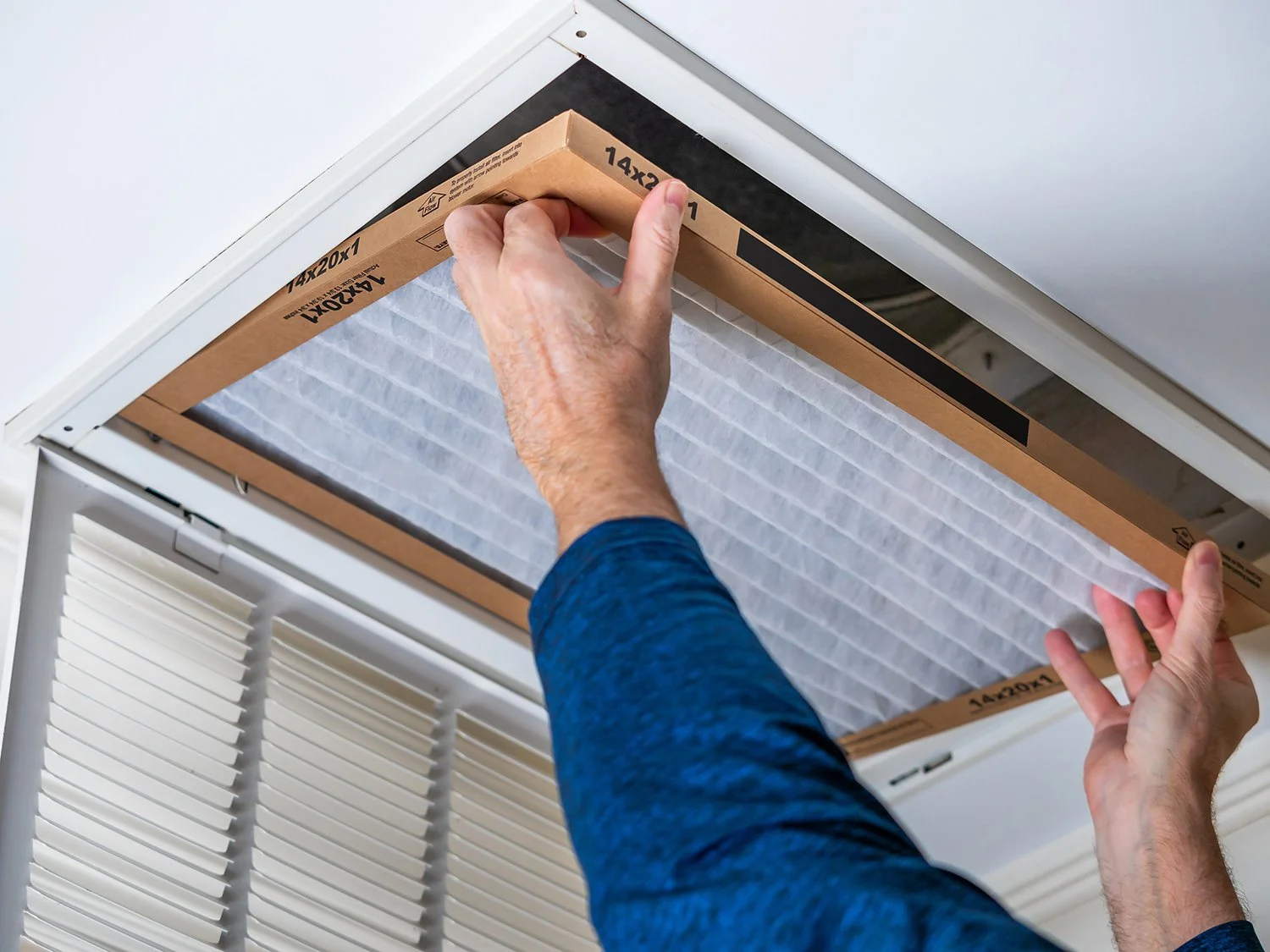Remote Work Home Maintenance: Keeping Your Boulder Home Office Productive

Boulder's remote work revolution started long before the pandemic made Zoom calls a household staple. With tech companies, startups, and freelancers drawn to the city's outdoor lifestyle and entrepreneurial spirit, home offices have been more common in Boulder than in other areas of Colorado. But working from home in Boulder presents unique challenges that go far beyond finding good Wi-Fi and a comfortable chair.
Your home office in Boulder isn't just competing with distracting mountain views and the constant temptation of hiking trails—it's battling altitude effects, dramatic weather swings, and air quality that can change faster than your motivation on a Monday morning. When your productivity depends on your home environment, maintaining that space becomes as crucial to your career success as your actual work skills.
After countless conversations with Boulder's remote workforce, we've compiled the essential guide to keeping your home office running smoothly in Boulder's unique environment. Because nothing kills a client presentation quite like your internet crashing during a thunderstorm.
Boulder's Climate vs. Your Home Office: The Daily Battle
Boulder's high-altitude desert climate creates the perfect storm for home office challenges. The dry air that makes your skin feel like sandpaper also affects your electronics, flooring, and even your internet equipment. Add in temperature swings that can hit 50 degrees in a single day, and your home office systems are working harder than a barista during the morning rush.
The city's elevation affects everything from your monitor's brightness settings to how quickly dust accumulates on equipment. Chinook winds can knock out power and internet, while the intense UV exposure at altitude can fade office furniture and strain your eyes more than at sea level.
Winter heating and summer cooling create humidity extremes that electronics hate. Your expensive computer setup can suffer from static electricity buildup in winter and condensation issues when temperatures rapidly change. Understanding these challenges is the first step to creating a home office that functions reliably year-round.
The Foundation: Internet and Power Infrastructure
Your home office is only as reliable as its most critical systems, and in Boulder, that means bulletproofing your internet and electrical infrastructure against weather-related outages and equipment failures.
Internet Redundancy: Your Lifeline
Boulder's internet infrastructure is generally solid, but chinook winds, construction projects, and the wildly unpredictable weather can create unexpected outages. Having backup internet isn't paranoia—it's professional insurance.
Consider multiple internet sources: fiber or satellite internet for primary service, cable as backup, and at the very least a cellular hotspot for emergencies. Some Boulder remote workers maintain business accounts with different providers, ensuring that if one goes down, work continues seamlessly.
Position your router and modem away from windows where temperature fluctuations are most extreme. Boulder's dry air creates static electricity that can damage networking equipment, so ensure proper grounding and consider a UPS (uninterruptible power supply) that conditions power as well as provides backup.
Electrical System Optimization
Boulder homes, especially older ones in neighborhoods like Mapleton Hill, may have electrical systems that weren't designed for today's home office power demands. Multiple monitors, printers, charging stations, and climate control equipment can strain circuits not designed for modern loads.
Have an electrician evaluate your office space's electrical capacity. Dedicated circuits for high-draw equipment prevent the embarrassing mid-call power loss when someone uses the microwave. GFCI outlets in basements or areas prone to moisture protect expensive equipment from electrical surges.
Surge protection in Boulder requires more than basic power strips. The combination of dry air and electrical storms creates conditions where power surges can damage equipment. Invest in whole-house surge protection and quality individual surge protectors for sensitive electronics.
Climate Control: Comfort and Equipment Protection
Boulder's extreme temperature variations and low humidity create challenges for both human comfort and equipment longevity. Your home office climate control strategy needs to address both.
Heating Efficiency and Reliability
Many Boulder homes rely on forced-air heating systems that can create uneven temperatures and dust circulation, both problematic for home offices. Consider supplemental heating options for your office space that provide consistent, quiet operation.
Space heaters can provide targeted warmth without heating the entire house, but choose models with safety features and adequate capacity for your space. Radiant heating options like heated floor mats or panels provide comfortable warmth without air circulation that can disturb papers or create noise during calls. Mini split heat pumps offer modern heating with minimal noise and enhanced efficiency.
Ensure your office space has adequate insulation. Many converted spaces like basements or garages lack proper insulation, making them expensive to heat and uncomfortable to occupy. Poor insulation also creates condensation issues that can damage electronics and create indoor air quality problems.
Cooling Solutions for Summer Productivity
Boulder's summer temperatures can make home offices unbearable, especially in upper floors or rooms with significant sun exposure. Central air conditioning isn't universal in Boulder homes, making supplemental cooling essential for summer productivity.
Window air conditioning units work well for dedicated office spaces, but consider placement carefully. Units facing south or west work harder due to sun exposure. Portable units offer flexibility but require proper exhaust venting to maintain efficiency.
Ceiling fans can significantly improve comfort and reduce cooling costs, but choose models designed for quiet operation. Nothing disrupts a video conference like a ceiling fan that sounds like a helicopter. Despite their name, mini split heat pumps offer both heating and cooling options for maximum versatility.
Humidity Management: The Invisible Productivity Killer
Boulder's low humidity affects both comfort and equipment. Dry air increases static electricity, makes dust more problematic, and can cause wood furniture and flooring to crack or warp.
Humidifiers help maintain comfortable humidity levels, but they require regular maintenance to prevent mold and bacteria growth. Choose models with automatic humidity control and easy cleaning access or whole-house humidifiers for optimal protection. Over-humidification can create condensation problems on windows and encourage mold growth.
Monitor humidity levels with a simple hygrometer. Ideal levels for home offices range from 40-60% humidity. Below 40%, static and dust become problematic. Above 60%, condensation and mold risks increase.
Lighting: Maximizing Natural Light While Protecting Vision
Boulder's intense sunlight and dramatic seasonal changes create unique lighting challenges for home offices. Too much direct sunlight creates glare and heat issues, while insufficient light strains eyes and reduces productivity.
Window Management and Glare Control
South-facing windows provide excellent natural light but can create significant glare and heat gain during peak hours. Adjustable window treatments allow you to control light throughout the day while maintaining views of Boulder's spectacular scenery.
Blackout curtains or shades help during video calls where backlighting can make you appear as a silhouette. Consider layered window treatments: sheer curtains for general light control and heavier curtains for complete light blocking when needed.
UV-filtering window film protects both you and your equipment from Boulder's intense high-altitude sun exposure. This film reduces glare and heat gain while protecting furniture and electronics from fading and degradation.
Artificial Lighting for Consistent Productivity
Supplement natural light with quality artificial lighting that adapts to Boulder's seasonal changes. Full-spectrum LED lights can help combat seasonal affective disorder common at higher altitudes during shorter winter days.
Task lighting for computer work should be positioned to avoid screen glare while providing adequate illumination for reading and writing. Adjustable desk lamps allow you to modify lighting throughout the day as natural light changes.
Consider the color temperature of your lighting. Cooler temperatures (5000K-6500K) promote alertness during work hours, while warmer temperatures (2700K-3000K) are more comfortable for evening work and less disruptive to sleep patterns.
Air Quality: Breathing Easy While Working Hard
Boulder's air quality varies significantly throughout the year, affected by wildfire smoke, seasonal allergies, and winter inversions that trap pollutants. Your home office air quality directly impacts productivity, health, and comfort.
Filtration and Purification
High-quality air filtration becomes essential during wildfire season when outdoor air quality can reach hazardous levels. HEPA air purifiers sized for your office space can maintain breathable air even when opening windows isn't an option.
Change HVAC filters more frequently than manufacturers recommend. Boulder's dust and seasonal allergens clog filters quickly, reducing system efficiency and air quality. Consider upgrading to higher-MERV rated filters if your system can handle the increased airflow resistance.
During wildfire season, create positive pressure in your office by running air purifiers continuously and keeping doors to other areas of the house closed. This prevents smoky air from infiltrating your workspace through gaps and openings.
Ventilation and Fresh Air Management
Boulder's dry climate makes proper ventilation crucial for comfort and health. Stagnant indoor air can become stuffy and reduce cognitive function, but opening windows isn't always practical due to allergens, smoke, or extreme temperatures.
Heat recovery ventilators (HRVs) or energy recovery ventilators (ERVs) provide fresh air while maintaining temperature control. These systems are particularly valuable in Boulder where outdoor conditions often make natural ventilation impractical.
Consider the timing of natural ventilation. Early morning hours often provide the cleanest outdoor air before traffic and daily activities increase pollution levels. Late evening can also offer good ventilation opportunities when temperatures drop.
Technology Infrastructure: Beyond Basic Setup
Your home office technology needs in Boulder go beyond having a good computer and reliable internet. The environment demands equipment choices and maintenance practices that account for local conditions.
Equipment Placement and Protection
Position sensitive electronics away from windows where temperature fluctuations are most extreme. Equipment that overheats due to sun exposure or struggles in cold conditions creates reliability issues and shortened equipment life.
Dust management becomes critical in Boulder's dry environment. Dust accumulates faster and can cause equipment overheating and failure. Regular cleaning schedules and dust filters for intake fans keep equipment running efficiently.
Static electricity control protects both equipment and data. Anti-static mats, proper grounding, and humidity control reduce the risk of static damage to sensitive electronics. This is particularly important during Boulder's dry winter months.
Backup and Redundancy Systems
Power outages and equipment failures in Boulder often coincide with severe weather when repair services may be delayed. Redundant systems ensure work continuity during extended outages or equipment problems.
Uninterruptible power supplies (UPS) should provide enough power for proper equipment shutdown and brief outage protection. Size UPS systems for your actual equipment load, including monitors, networking equipment, and any other critical devices.
Cloud-based backup systems work well for data protection, but local backup drives provide access during internet outages. Consider battery-powered backup drives that don't require AC power during outages.
Ergonomics and Furniture: Comfort for Long-Term Productivity
Working from home often means longer hours in your office space, making ergonomic considerations crucial for both immediate comfort and long-term health.
Desk and Chair Selection for Boulder Conditions
Boulder's dry air affects wooden furniture, causing warping, cracking, and joint loosening. Choose furniture materials that handle low humidity well, or plan for additional humidification around wooden pieces.
Adjustable-height desks accommodate different work styles and can help with circulation during long work sessions. This flexibility becomes more important when you're spending entire days in your home office rather than moving between different office environments.
Quality office chairs represent a significant investment but pay dividends in comfort and productivity. Look for chairs with breathable materials that handle Boulder's dry air well and adjustable features that accommodate different seasonal clothing requirements.
Monitor and Equipment Positioning
Multiple monitor setups reduce eye strain and increase productivity, but proper positioning becomes crucial in Boulder's bright environment. Anti-glare screens or monitor positioning that avoids window reflections prevent eye strain and improve screen visibility.
Monitor height should position the top of the screen at or slightly below eye level. This becomes more important with extended home office use where you're not moving between different workstations throughout the day.
Keyboard and mouse positioning should allow relaxed shoulder and arm positions. Boulder's dry air can make repetitive stress injuries more problematic, so proper ergonomics and regular movement breaks become essential.
Seasonal Maintenance Schedules: Year-Round Office Optimization
Boulder's distinct seasons each present unique challenges for home office maintenance. Proactive seasonal maintenance prevents problems and ensures consistent productivity year-round.
Spring Office Revival (March-May)
Spring cleaning for home offices goes beyond dusting. Deep clean equipment vents and fans that have accumulated winter dust and debris. Check and replace air purifier filters before allergy season peaks.
Inspect window seals and weather stripping. Winter freeze-thaw cycles can damage seals that keep dust, pollen, and outdoor air from infiltrating your office space.
Test cooling systems before you need them. Schedule HVAC maintenance and ensure supplemental cooling equipment is clean and functional before summer heat arrives.
Summer Productivity Protection (June-August)
Monitor indoor temperatures and humidity levels closely. Boulder's summer heat can make home offices uncomfortable and reduce equipment reliability.
Wildfire season requires special attention to air filtration systems. Monitor air quality forecasts and adjust ventilation strategies accordingly. Have backup filtration ready for severe smoke events.
Protect equipment from power surges common during summer thunderstorms. Check surge protection systems and consider unplugging sensitive equipment during severe weather.
Fall Preparation (September-November)
Prepare heating systems for winter operation. Clean and inspect supplemental heating equipment, and ensure proper ventilation for any combustion heating sources.
Winter-proof outdoor equipment like satellite dishes or external networking equipment. Boulder's winter weather can damage improperly protected outdoor technology.
Stock up on supplies for winter weather events. Having backup power, heating, and communication options ready prevents work disruptions during severe weather.
Winter Resilience (December-February)
Monitor humidity levels closely as heating systems reduce indoor humidity to uncomfortable and potentially damaging levels.
Prevent frozen pipes in basement or garage offices. Even minimal heating and proper insulation can prevent costly pipe damage that disrupts work and creates expensive repairs.
Plan for snow removal and emergency access. Ensure you can reach outdoor equipment and emergency egress routes remain clear during heavy snow events.
Streamlining Home Office Maintenance: The Concierge Solution
Managing all these maintenance requirements while trying to focus on your actual work can feel like having a second job. Between monitoring air quality, maintaining equipment, managing seasonal preparations, and coordinating repairs, home office maintenance can become overwhelming.
That's where Willow's home concierge service transforms home office maintenance from a distraction into a managed service. Instead of trying to remember when to change air filters, schedule HVAC maintenance, or prepare for seasonal challenges, Willow handles the coordination and management of your home office environment.
Proactive Maintenance Scheduling: Your Willow advisor maintains a schedule of seasonal maintenance tasks specific to your entire home, including your home office. They coordinate HVAC service, equipment cleaning, and seasonal preparations so you can focus on work rather than maintenance calendars.
Emergency Response Coordination: When systems fail during critical work periods, Willow coordinates emergency repairs with qualified technicians who understand home office requirements. They prioritize repairs that affect your ability to work and ensure minimal disruption to your productivity.
Environmental Monitoring: Willow can help you implement and maintain air quality monitoring, humidity control, and other environmental systems that protect both your health and your equipment investment.
Technology Integration: From coordinating smart home systems that optimize your office environment to managing backup power and networking solutions, Willow ensures your technology infrastructure supports rather than hinders your productivity.
For Boulder's remote workforce, Willow's home concierge service provides the peace of mind that comes from knowing your home office environment is professionally managed and maintained.
The Investment Perspective: ROI of Proper Maintenance
Proper home office maintenance isn't just about comfort—it's about protecting your career investment and maintaining professional reliability. The cost of maintaining optimal working conditions pales compared to lost productivity, damaged equipment, or missed opportunities due to preventable failures.
Calculate the true cost of downtime in your profession. A single day without internet or climate control can cost more than months of proactive maintenance. Professional credibility damaged by technical difficulties during important calls or presentations can have long-term career impacts.
Consider the health implications of poor indoor air quality, inadequate lighting, or ergonomic problems. Healthcare costs and reduced productivity from preventable health issues often exceed the investment in proper office environment maintenance.
Equipment longevity improves significantly with proper environmental controls. Computers, monitors, and other electronics last longer and perform better in properly maintained environments, reducing replacement costs and improving reliability.
The Bottom Line: Your Home Office as a Professional Asset
Your Boulder home office isn't just a spare room with a desk—it's a professional asset that requires the same attention and maintenance as any other business infrastructure. Boulder's unique climate and environmental challenges make proper maintenance even more critical for sustained productivity and professional success.
The goal isn't to create a perfect environment—it's to create a reliable, comfortable, and productive workspace that supports your professional goals regardless of Boulder's weather mood swings or seasonal challenges.
Every maintained system, every scheduled service, and every proactive improvement represents an investment in your professional reliability and personal well-being. In Boulder's competitive remote work market, having a home office that consistently performs well isn't luxury—it's a necessity.
Whether you manage home maintenance yourself or work with a home concierge service, the key is consistency and attention to the unique challenges of working from home in Boulder's high-altitude, variable climate. Your career depends on your home office working as reliably as any traditional workplace, and proper maintenance ensures that reliability regardless of what Boulder's weather brings to your doorstep.
The most successful Boulder remote workers understand that their home office is both their sanctuary and their competitive advantage. Maintaining that advantage requires the same professional approach you'd bring to any other critical business infrastructure. Invest in your workspace, maintain it properly, and it will support your professional success for years to come.
Home Concierge for Luxury Home Property Management
At Willow, we take a proactive approach to home care, ensuring your luxury home remains in pristine condition year-round. From routine maintenance and seasonal upkeep to coordinating trusted vendors for repairs and upgrades, we handle it all with a high-touch, concierge-style experience tailored to your needs.
Let us take home management off your plate. Contact Willow today to learn how our services can help you protect, maintain, and enhance your home with ease.
Willow is a luxury home concierge service based in Boulder, Colorado. We care about your home and giving you back your time to do the things you care about most.
How it Works








